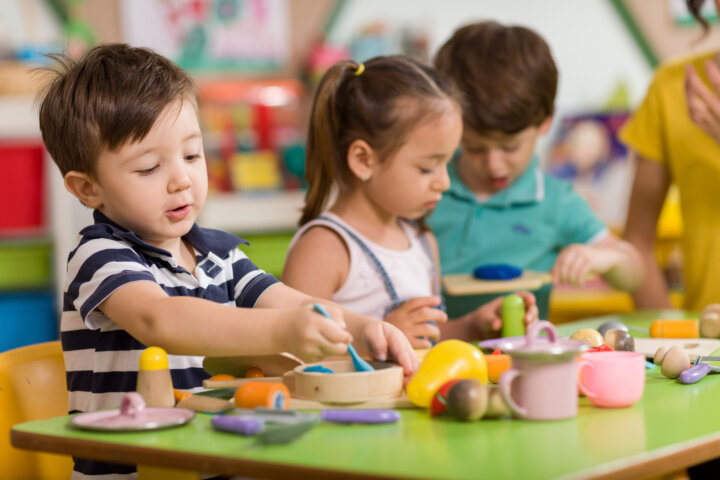Barn, linjaler och andra aktörer: Posthumanistiska perspektiv på subjektskapande och materialitet i förskola/skola
Karin Hultman
Docent Hillevi Lenz Taguchi
Docent Cecilia Åsberg
SU – Stockholms universitet
2011-11-18
Barn, linjaler och andra aktörer: Posthumanistiska perspektiv på subjektskapande och materialitet i förskola/skola
Children, rulers and other actors: Posthumanist perspectives on subjectivity and materiality in pre-school and school
Institutionen för pedagogik och didaktik
Children, rulers and other actors: Posthumanist perspectives on subjectivity and materiality in pre-school and school
This thesis examines the interaction between nonhuman materiality and the construction of subjectivity in pedagogical practices. The starting point is that children are constantly engaged in significant relations, not only to other humans but also to nonhuman matter, and that nonhuman materiality such as pedagogical material, toys and furniture partake and play an important role in the construction of children s subjectivities. However, most theories that are being used in educational research with a focus on subjectivity take on a notion that renders nonhuman materiality as passive, and as firmly subordinated humans or language. In order to take into account how nonhuman materiality can be understood as a constitutive force I turn to and investigate a posthumanist perspective that conceptualize agency and performative qualities as a property, not only of humans but also of nonhuman materiality (Barad 1997; Bennett 2004, 2005, 2007; Pickering 1995, 2005). Among the different theoretical frameworks and concepts available that shares these understandings I especially focus on concepts developed in actor- network theory (Callon 1986; Latour 1992; 1999a, 1999b, 2005; Law 2002, 2004). In four research articles I put these concepts to work in relation to pieces of empirical data from pedagogical practices in order to investigate how subjectivity is constituted by the interplay between humans and nonhumans. From these four articles I conclude that a posthumanist perspective in which the world is conceptualized as constitutive and performative can intensify and broaden the insights made from post structural and social constructionist perspectives, which have focused on language as a constitutive force. I further discuss how a posthumanist perspective gives way to an understanding of children s relations to nonhumans in terms of communication, mutual transformations and translations that changes both humans and nonhumans.
Relaterade länkar

Svenska som andraspråk
 Åk F–Vux
Åk F–Vux
När leken inte fungerar
 Fsk
Fsk


